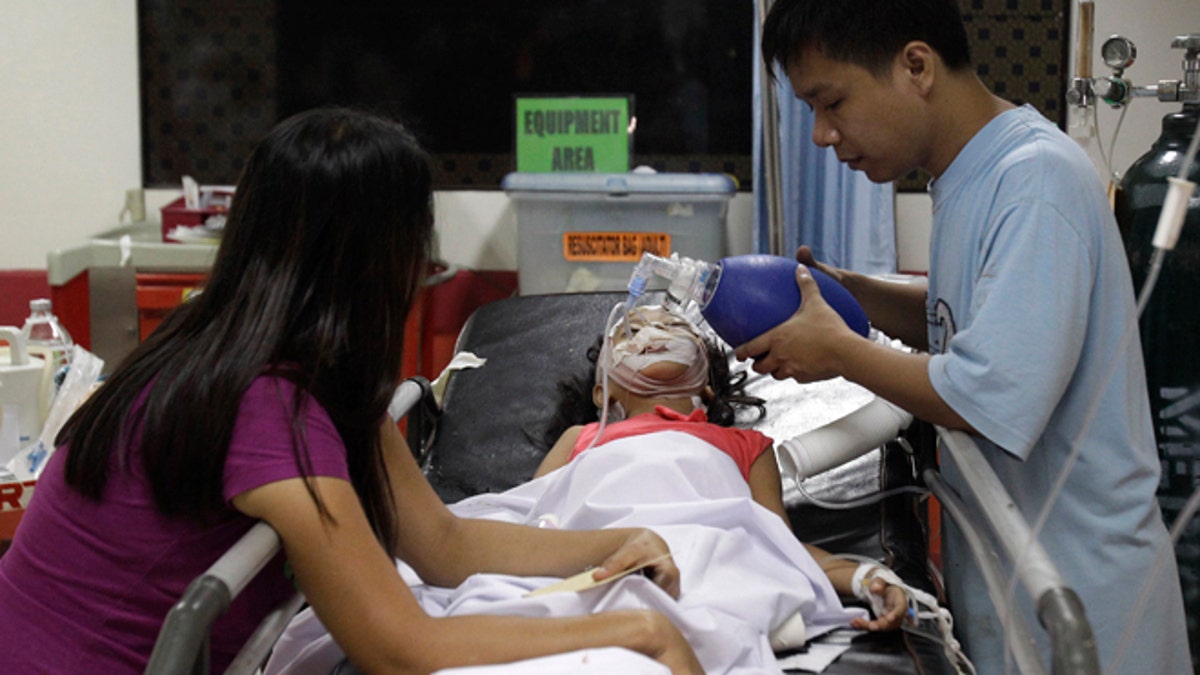
Jan. 1, 2013: Seven-year-old Stephanie Nicole Ella lays in a bed as her parents aid in giving her life support while being treated at the East Avenue Medical Center after she was hit in the head by a stray bullet while watching fireworks with her family during New Year's Eve revelry, in suburban Quezon city, north of Manila, Philippines. Ella died in a hospital Wednesday heightening calls to halt one of Asia's most violent celebrations of the new year. (AP)
MANILA, Philippines – A 7-year-old girl died Wednesday after being hit in the head by a stray bullet during New Year's Eve revelry in the Philippines, heightening calls to halt one of Asia's most violent celebrations of the new year.
Stephanie Nicole Ella was watching fireworks with her family in their working-class neighborhood in Manila's suburban Caloocan city when she suddenly collapsed, blood spurting from her head. As she fought for her life in a government hospital, watched by her stunned parents, extensive media coverage of her ordeal turned her into a symbol of widespread concern over the violent celebrations.
Nearly 700 people were injured by firecrackers, including many illegally large types, and by celebratory gunfire on the days leading to the new year despite government warnings and a crackdown on prohibited firecrackers and gun firing. A boy also died when he was accidentally shot in the back with a homemade shotgun by an intoxicated man in Mandaluyong city in the capital at the height of New Year's revelry, police said, adding a suspect has been arrested.
At least 40 people were injured by stray bullets during the New Year revelries, according to police.
Stephanie, an award-winning student, "dreamed at a young age to become rich to help us," her distraught father, Jay Ella, told reporters.
"This tragedy is a sobering reminder of how a reprehensible act from a thoughtless individual can rob our people, particularly our children, of their futures," President Benigno Aquino III's spokesman, Edwin Lacierda, said in a statement. "For such a promising life to be lost in such a senseless way puts the burden on all of us to make certain that this tragedy is not repeated."
Many Filipinos, largely influenced by Chinese tradition, believe that noisy New Year's celebrations drive away evil and misfortune. But they have carried that superstition to extremes, exploding dangerously huge firecrackers and firing guns to welcome the new year despite threats of arrest.
Although the number of injuries has tapered off in recent years, largely due to hard economic times and government scare campaigns, the figures remain alarming.
